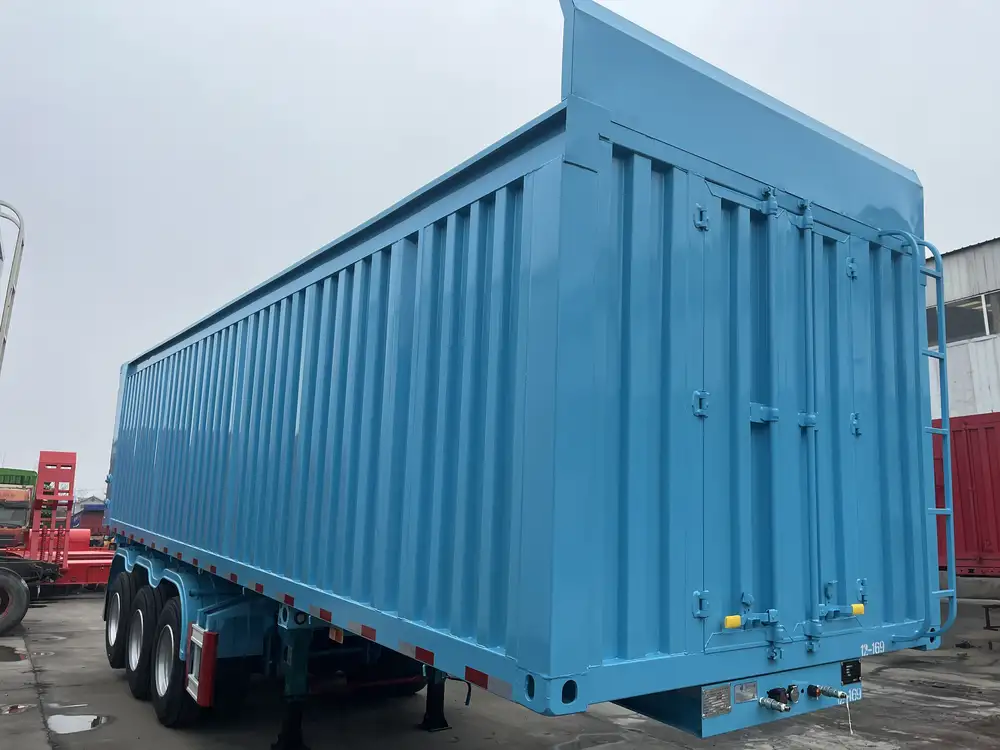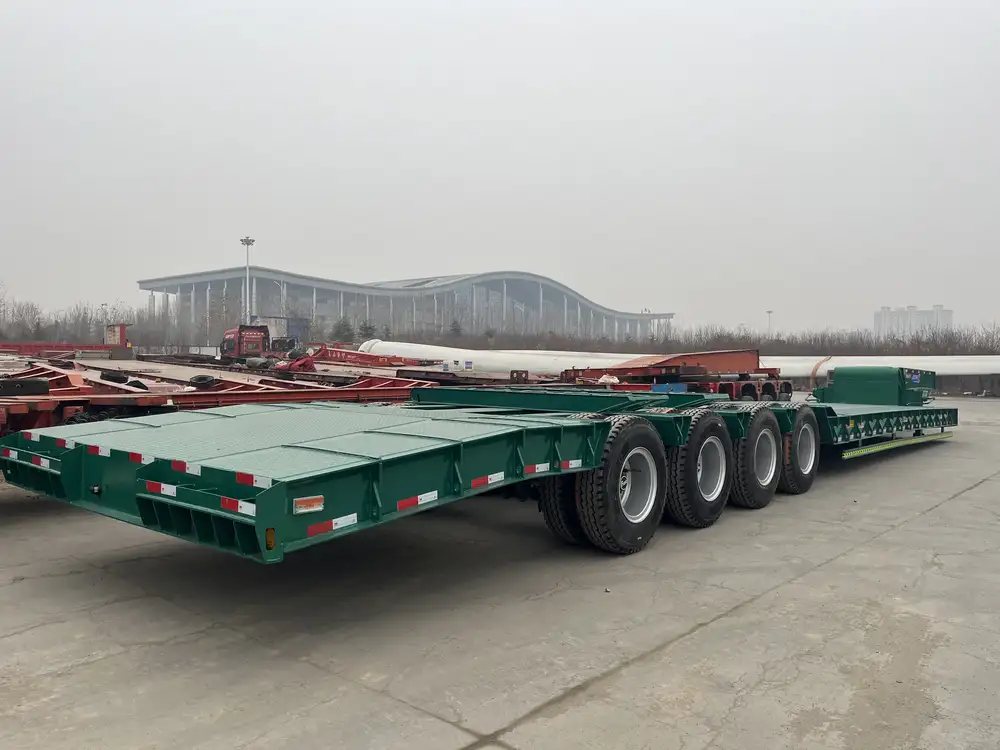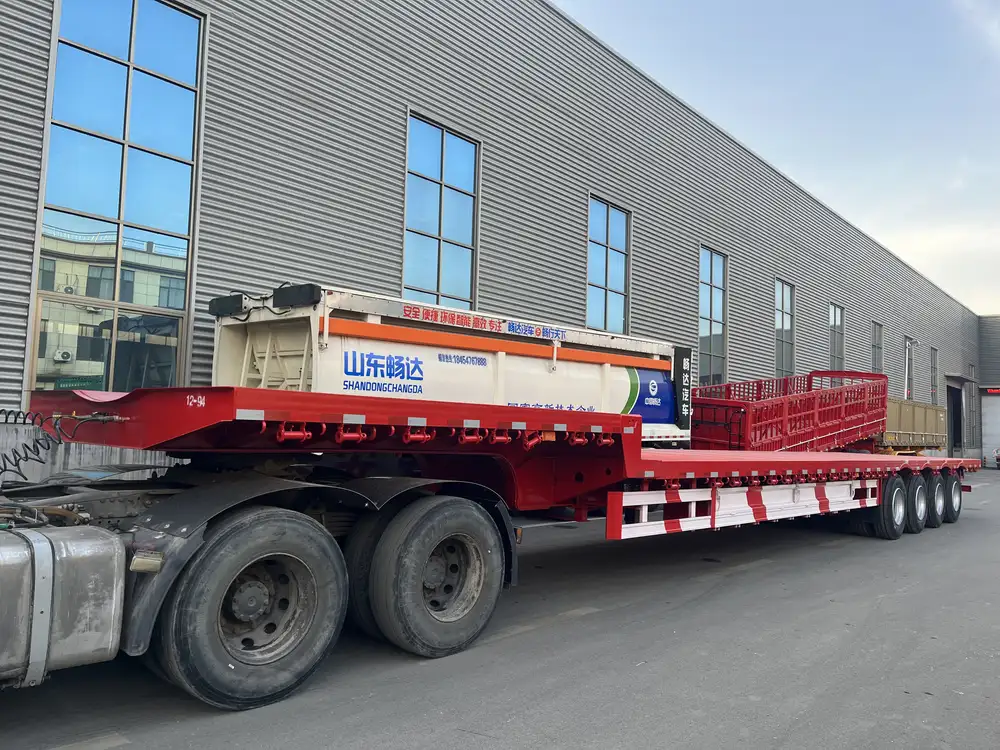Dump trailers are essential in the construction and transportation industries, allowing for the efficient unloading of materials like gravel, dirt, and debris. However, another critical aspect often overlooked is the proper lubrication and maintenance of these trailers. Choosing the right type of oil is vital for optimal performance and longevity. In this article, we will provide comprehensive insights into “what kind of oil is used in a dump trailer,” addressing everything from lubrication requirements to maintenance best practices.
Types of Oil Used in Dump Trailers
When it comes to dump trailers, various components require different types of oil for optimal functioning. Below is a detailed breakdown of the types of oil commonly utilized in these trailers:
1. Hydraulic Oil
Function and Importance
- Hydraulic oil is essential for the functioning of the hydraulic system in a dump trailer. It operates the lift mechanism, allowing for the dumping of contents.
| Types of Hydraulic Oils: | Type | Viscosity Rating | Applications |
|---|---|---|---|
| AW (Anti-Wear) | ISO 32, 46, 68 | General hydraulic machinery | |
| HFD (Fire-Resistant) | ISO 46, 68 | High-temperature environments | |
| Biodegradable | ISO 32, 46 | Environmentally sensitive areas |
Best Practices:
- Regularly check hydraulic fluid levels and inspect for leaks.
- Use oil that meets or exceeds the automotive standards set by the American Society for Testing and Materials (ASTM).

2. Gear Oil
Function and Importance
- Gear oil is predominantly utilized within the trailer’s axles and gear systems. It helps in reducing friction and protecting against wear and tear.
Types of Gear Oils:
- Conventional Gear Oil: Typically available in 80W-90 and 75W-140 grades, these oils cater to diverse temperature conditions.
- Synthetic Gear Oil: Often recommended for extreme conditions due to its thermal stability and resistance to breakdown.
| Type | Characteristics | Recommended Uses |
|---|---|---|
| Conventional | Effective and affordable | Standard duty cycles |
| Synthetic | High performance and longevity | Heavy-duty and extreme conditions |
Best Practices:
- Inspect and replace gear oil as per manufacturer recommendations, usually every 12,000-15,000 miles.
- Check for any signs of discoloration or peculiar odors that may indicate contamination.
3. Lubricating Oil for Bearings
Function and Importance
- Bearings, typically found in the wheel systems of dump trailers, require effective lubricating oil for smooth operation and durability.
| Types of Lubricating Oils: | Type | Properties | Best Use Cases |
|---|---|---|---|
| Grease | Thick, viscous lubricant | Protection against water intrusion | |
| Light oil (SAE 30/40) | Thin and easily spreadable | General lubrication needs |
Best Practices:
- Apply lubricating oil during regular maintenance checks, especially prior to extensive hauling.
- Ensure caps are securely fastened to prevent oil leakage.
4. Engine Oil (if applicable)
Function and Importance
- If your dump trailer is equipped with a motor (such as for self-loading capabilities), conventional engine oil is necessary for maintaining engine health.
| Types of Engine Oils: | Type | Viscosity | Applications |
|---|---|---|---|
| SAE 10W-30/10W-40 | Multi-viscosity | General engine operation | |
| Synthetic | Various grades | Extreme conditions and longevity |
Best Practices:
- Monitor oil levels and change engine oil every 3,000 to 5,000 miles or per the manufacturer’s guidelines.
- Utilize a quality oil filter to ensure cleaner oil circulation.

Selection of Oil Based on Environmental Conditions
Temperature Considerations
The viscosity of the oil is critical based on the ambient temperature. For example:
- Cold Weather: Thicker oils (40-weight) may thicken excessively, impeding performance.
- Hot Weather: Thinner oils (10-weight) may not provide enough lubrication under high load.
Application-Specific Choices
Depending on the specific use case of the dump trailer, the choice of oil may also vary:
- Frequent Hauling: Hydraulics and gear oils that emphasize thermal resistance are advisable.
- Light-duty transport: Conventional oils may suffice.

Maintenance Recommendations for Optimal Performance
Regular Checks
- Fluid Levels: Consistently inspect the hydraulic, gear, and engine oil levels.
- Visual Inspection: Look for leaks, cracks, or missing components.
Scheduled Services
| Task | Frequency |
|---|---|
| Hydraulic fluid change | Every 1-2 years |
| Gear oil change | Every 12,000-15,000 miles |
| Lubrication of bearings | Every 6 months in normal usage |

Top Tips for Efficient Oil Usage
- Use Quality Products: Always utilize oils that meet or exceed specifications.
- Dispose Responsibly: Follow local guidelines for disposing of used oils.
- Documentation: Keep records of maintenance and oil changes for future reference.
FAQs About Oil for Dump Trailers
How often should I change the hydraulic oil in my dump trailer?
It is recommended to change hydraulic oil every 1-2 years, depending on usage. For heavy users, consider annual changes.

Can I mix different types of hydraulic oil?
Mixing different types of hydraulic oils is generally discouraged. Always stick to one brand and type to maintain performance stability.
What signs indicate low hydraulic oil?
Signs of low hydraulic oil include:
- Reduced lifting power,
- Unusual noises while operating,
- Fluid leaks near the hydraulic pump.
Are synthetic oils better than conventional?
Synthetic oils provide superior performance under extreme temperatures and conditions and usually require less frequent changes than conventional oils.

How do I know what weight of gear oil to use?
Refer to the dump trailer manufacturer’s manual or specifications. Generally, 80W-90 is a common choice for standard applications, while 75W-140 is preferred for heavier loads.
Conclusion
In the world of dump trailers, understanding the various types and functions of oils is crucial for maintaining performance and longevity. From hydraulic and gear oils to lubricants for bearings, each plays a vital role in the seamless operation of these heavy-duty vehicles. Implementing regular maintenance schedules, selecting the right oils for specific conditions, and addressing these details can prevent operational hitches and extend the lifespan of your trailer. By following the guidelines outlined in this article, operators can ensure that their dump trailers remain in prime condition, ready to tackle any job that comes their way. Optimize your maintenance practices today for a smoother, more efficient hauling operation in the future!



